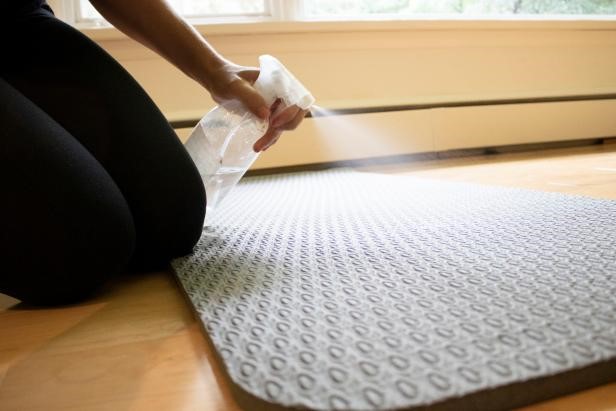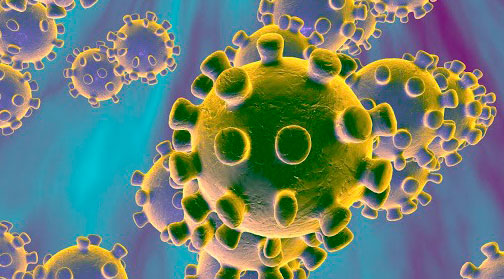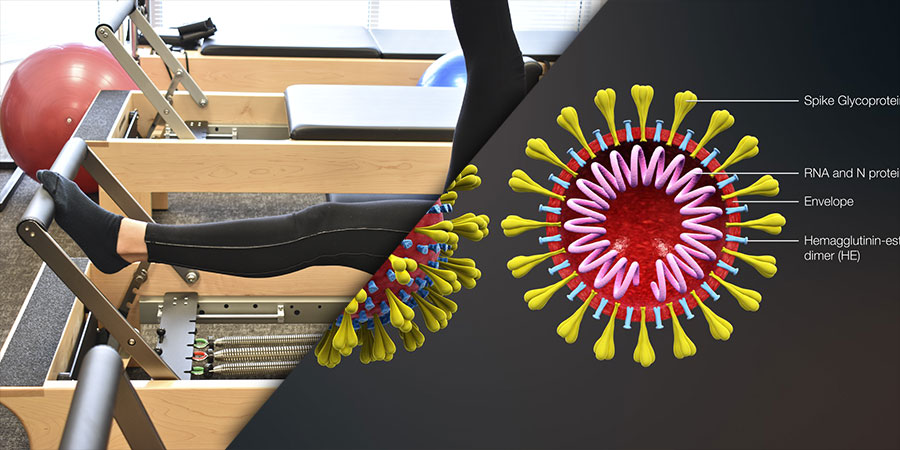Avoid Corona Virus – Pilates apparatus disinfectants recommended
There are growing health risks in sharing a matwithout disinfecting it – any kind of exercise mat. Even your own unshared Pilates or yoga mat poses risks if you don’t clean it after each use. Let’s look at the most effective and healthy options for cleaning your mat. By the way, to reduce your risk of skin diseases spray or wipe both sides of your exercise mat after each use using any of the disinfecting products listed below. For optimal protection, every couple of months additionally give it a thorough washing with any of the cleaning products reviewed below.
Is Bleach the Best Disinfectant?
Bleach is the cheapest, most effective and most readily-available disinfectant, but it may not be the best choice for disinfecting a yoga or Pilates mat. The reason is that bleach poses its own health risks. It’s dangerous for the lungs, skin, eyes and your mat.

Amy Hanoian-Fontana, community education specialist at the Connecticut Poison Control Center says, “Most poison center calls involve exposures to household bleach. The symptoms are mild to moderate, resolve after thorough flushing with water, and leave no long-term effects.”
She explains that household bleach products contain 5 percent hypochlorite – a very dangerous chemical. Although most people dilute bleach with water for home cleaning, mixing even diluted bleach withdisinfecting exercising mat certain other common household cleaners such as ammonia, vinegar or other acids produces toxic chlorine gas.
Though swimming pool chemicals and other products with higher concentrations of hypochlorite are safe if used as directed, there’s got to be a safer alternative for cleaning a mat.
The other serious concern is our environment. The manufacture of bleach generates dioxin which has been linked to cancer and birth defects, and is highly toxic to birds and fish.
Other household cleaners are not disinfectants. The Centers for Disease Control and Prevention warns that ammonia, baking soda, vinegar and borax are not registered as disinfectants with the Environmental Protection Agency, because they have little or no effect on staph infections, salmonella and E.coli. And forget about hydrogen peroxide because it causes severe burns at high enough concentrations to be an effective disinfectant.
Be protected against coronavirus

There is currently no vaccine to prevent coronavirus disease 2019 (COVID-19). The best way to prevent illness is to avoid being exposed to this virus. However, as a reminder, CDC always recommends everyday preventive actions to help prevent the spread of respiratory diseases like cleaning and disinfecting frequently touched objects and surfaces using a regular household cleaning spray or wipe. People who think they may have been exposed to COVID-19 should contact their healthcare provider immediately.
Source: https://pilateslessons.org/article/how-to-clean-a-yoga-mat/








